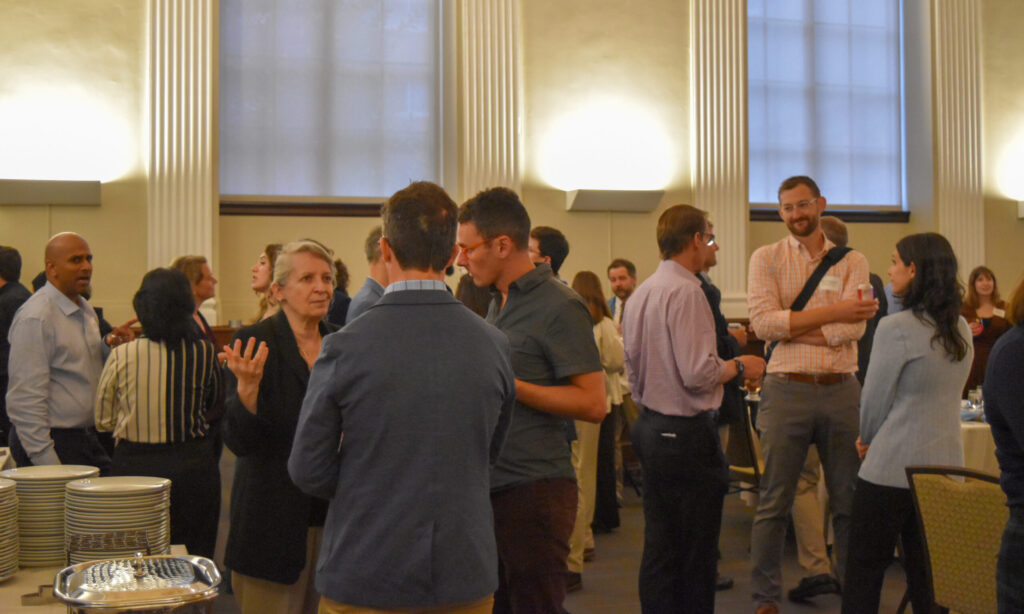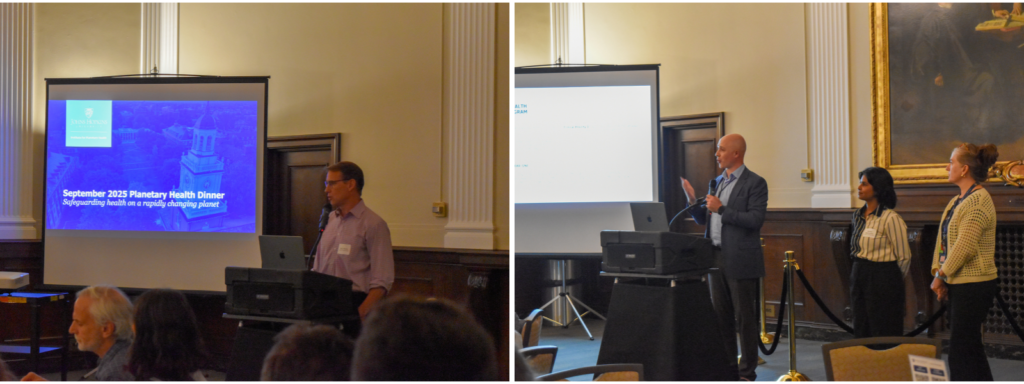
On September 16, the Johns Hopkins Institute for Planetary Health (JHIPH) welcomed faculty, staff, students, and community members to its first Planetary Health dinner of the academic year. This special evening marked the beginning of our new school year—an opportunity to share our goals, celebrate ongoing efforts across Johns Hopkins, and invite attendees to connect with and contribute to our growing community.
In his opening remarks, JHIPH Founding Director Sam Myers set the tone by reminding us of the urgency of the moment we are in and the critical need to come together across disciplines to safeguard a livable future.
“Planetary Health recognizes that the Earth crisis is also a global health and humanitarian crisis. At the Institute, we use this framework—linking global-scale environmental change to human health outcomes—as an organizing framework to bring community together to address these societal challenges,” said Sam.
“What’s exciting is that everyone’s expertise is incredibly important and relevant to meeting this moment. The work of community organizers, educators, artists, humanitarians, historians, social sciences, natural sciences, engineers, government leaders, legal experts, and others—their work is all hugely relevant.”

The dinner also marked an important transition in our leadership. We were proud to formally introduce Dr. Rachel Marcus as JHIPH’s new Executive Director. Rachel’s distinguished career, at the intersection of population, environment, and health systems, makes her an ideal match for our mission as we enter our next phase of growth. We also expressed our deep gratitude to Marie Studer for her impactful tenure as Executive Director. We are fortunate to continue benefiting from her vision and expertise in her new role as Senior Advisor.
Following the opening remarks, JHIPH faculty and programmatic staff offered exciting previews of the year ahead, including:
- Stimulating cross-disciplinary research through dedicated hubs on air quality, infectious disease, and food systems.
- Integrating Planetary Health principles and teaching across all Johns Hopkins schools and divisions through First-Year Seminars, foundational coursework, and other academic initiatives.
- Advancing legal and policy frameworks by building foundational scholarship in Planetary Health law and contributing to global policy agendas.
- Translating research into action to develop and implement solutions that address the Earth crisis, from urban design to engineering advancements
- Training the next generation of clinicians to understand and address the extensive health impacts of accelerating environmental change.
For a deeper look at our programs and to learn how you can get involved, we invite you to attend one of our upcoming Virtual Open House events!
This year, we’re also expanding our event programming. Expect more events at varied times, focused convenings on key topics in Planetary Health, and new forums designed specifically for student engagement.
Explore all upcoming events on our new and improved Event Calendar!

